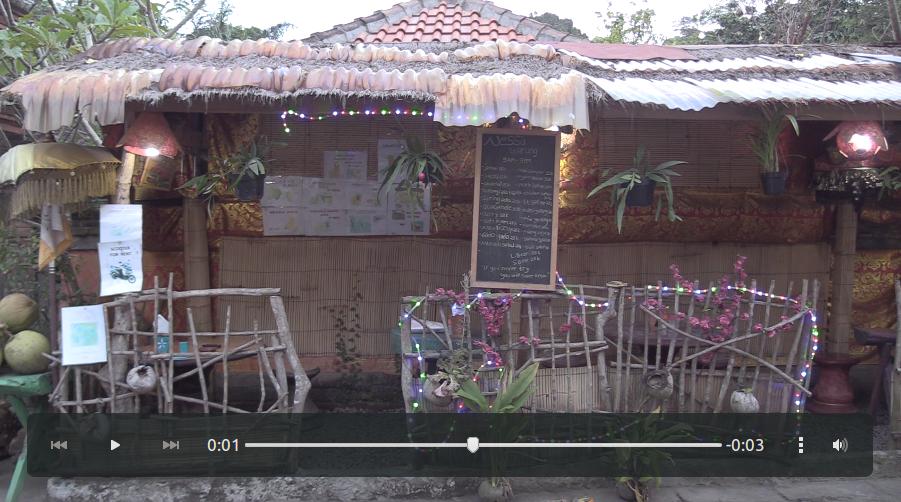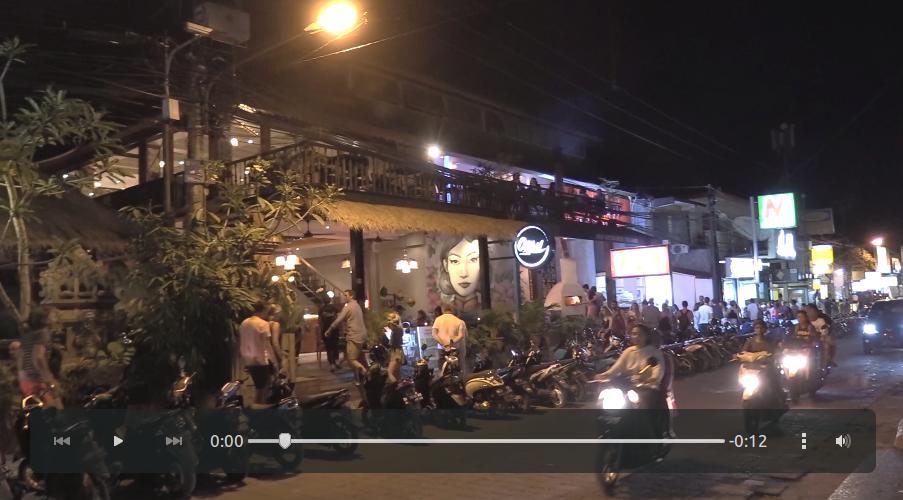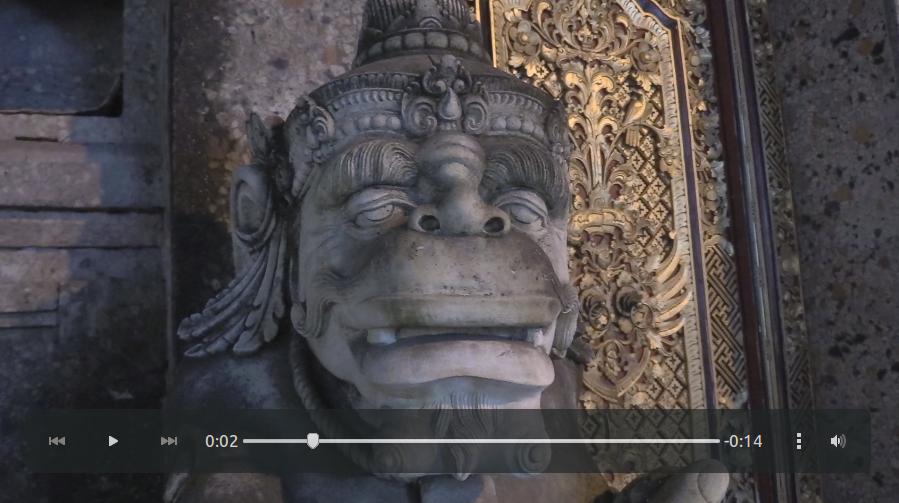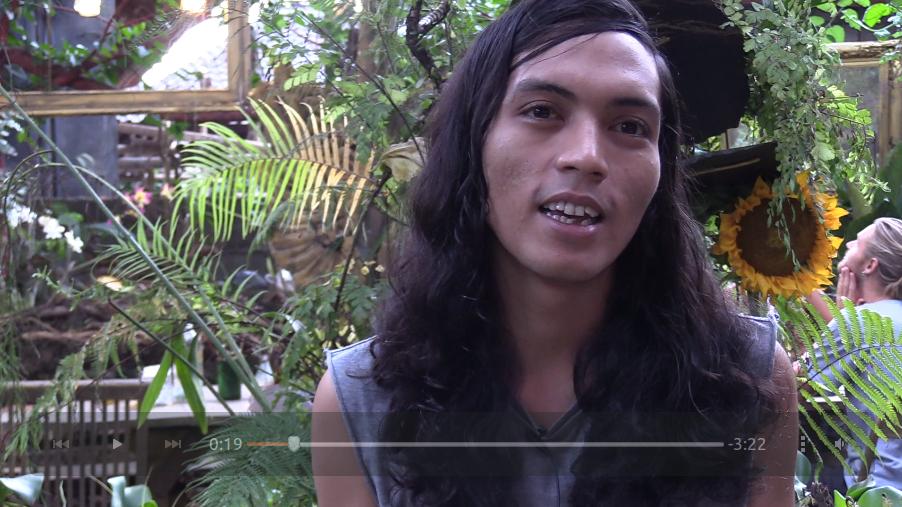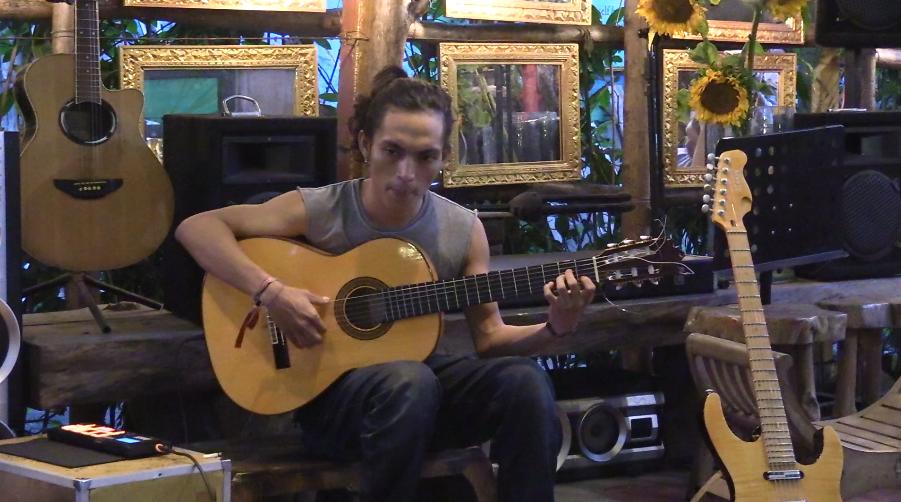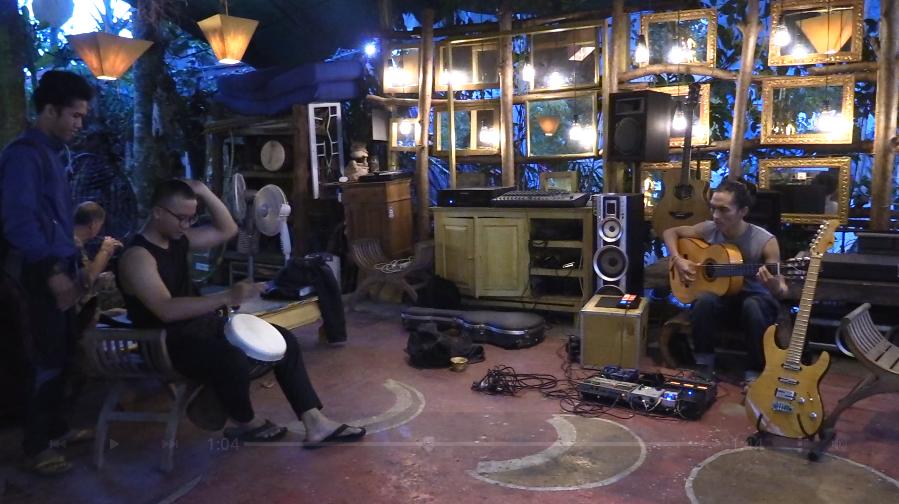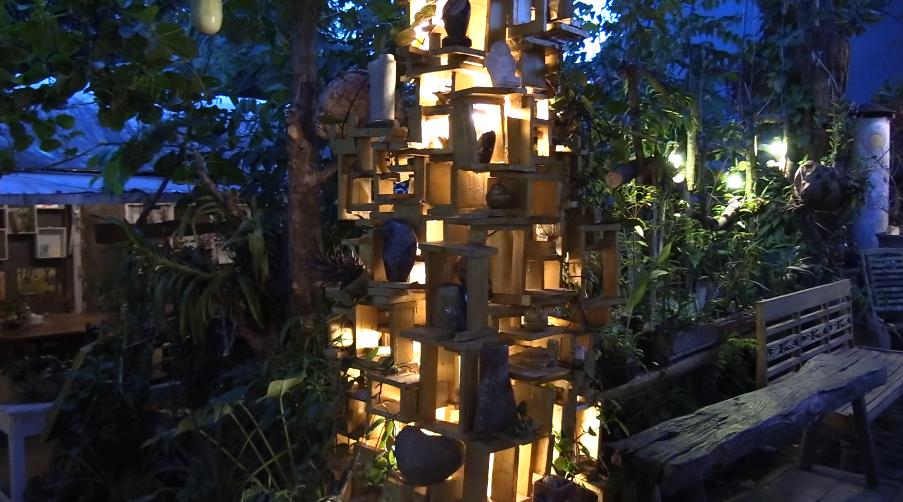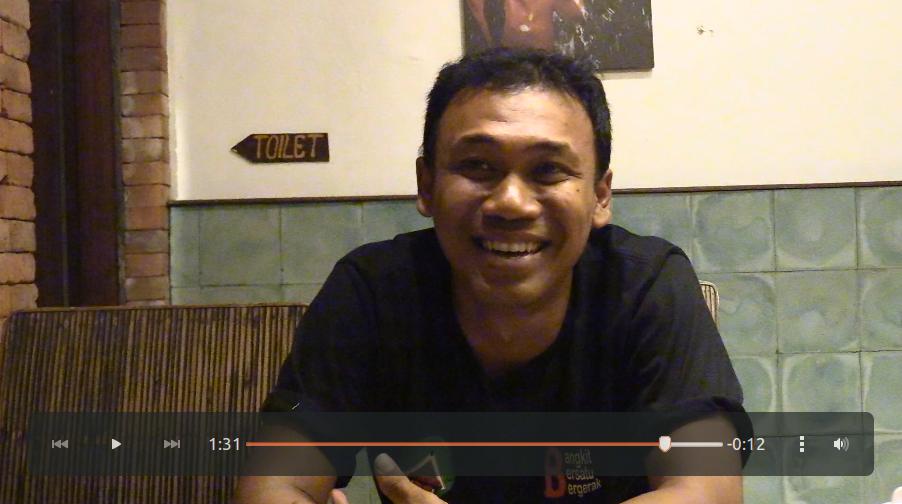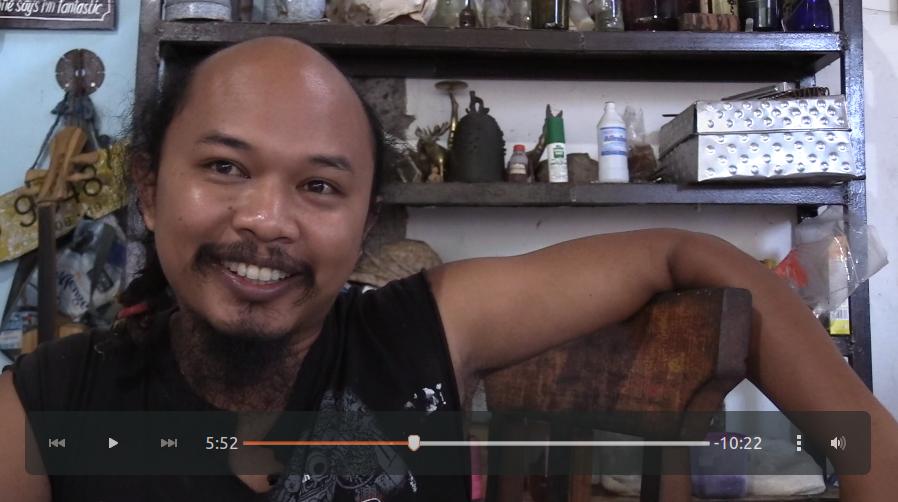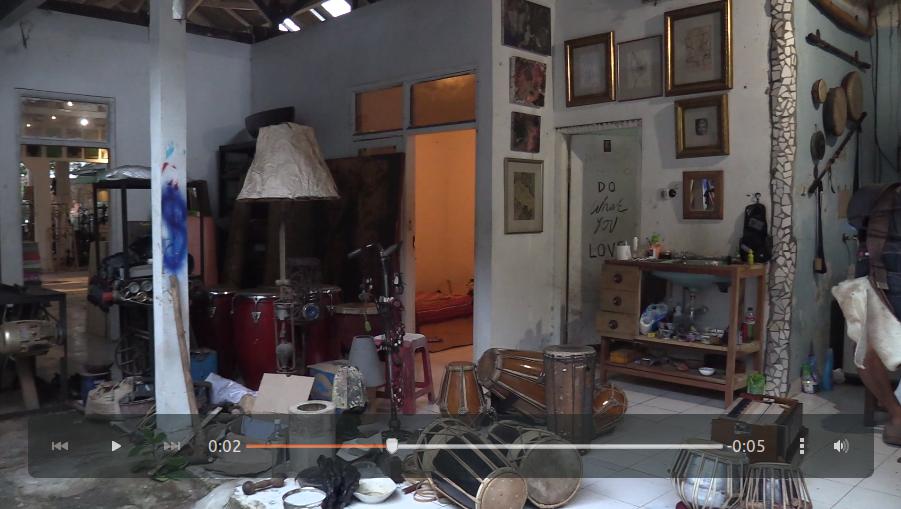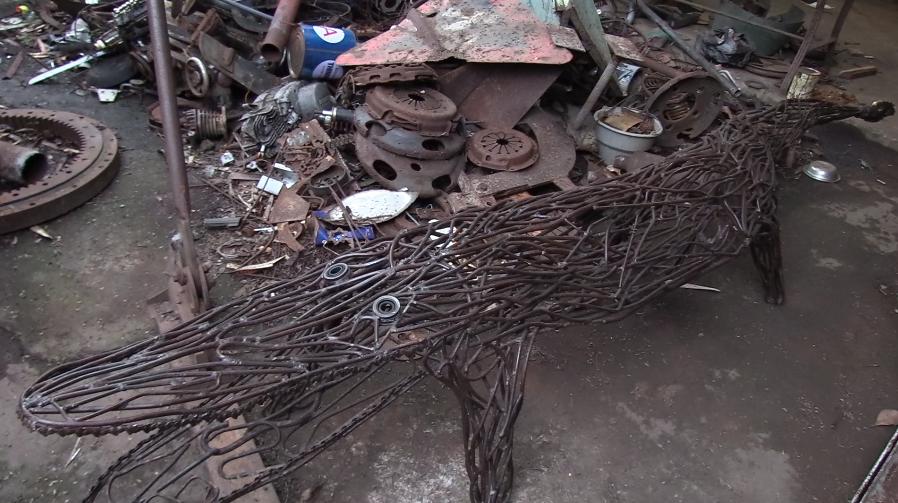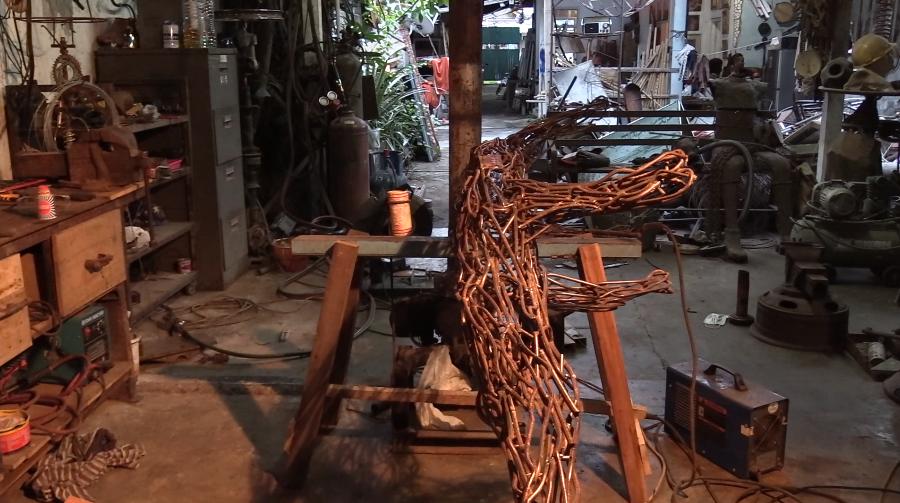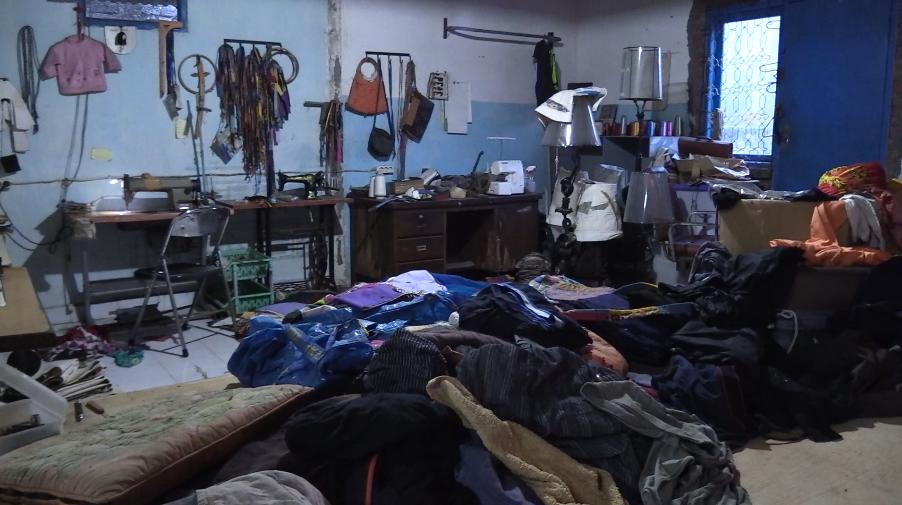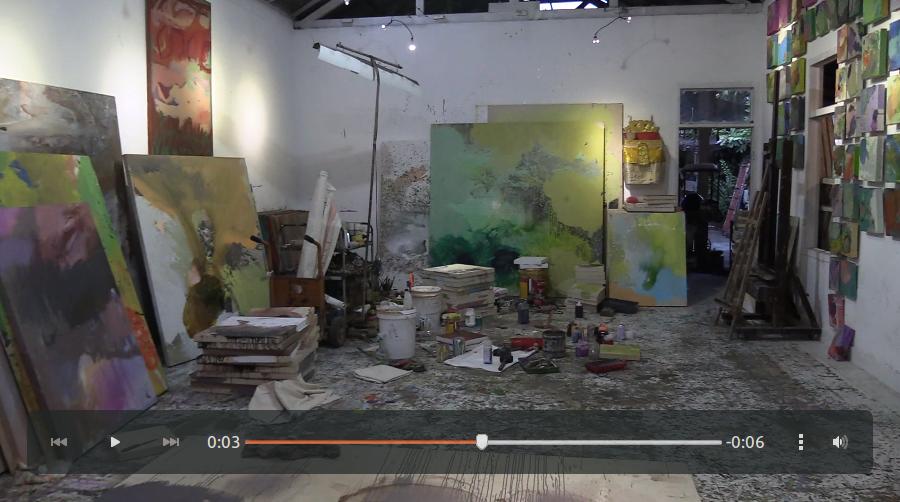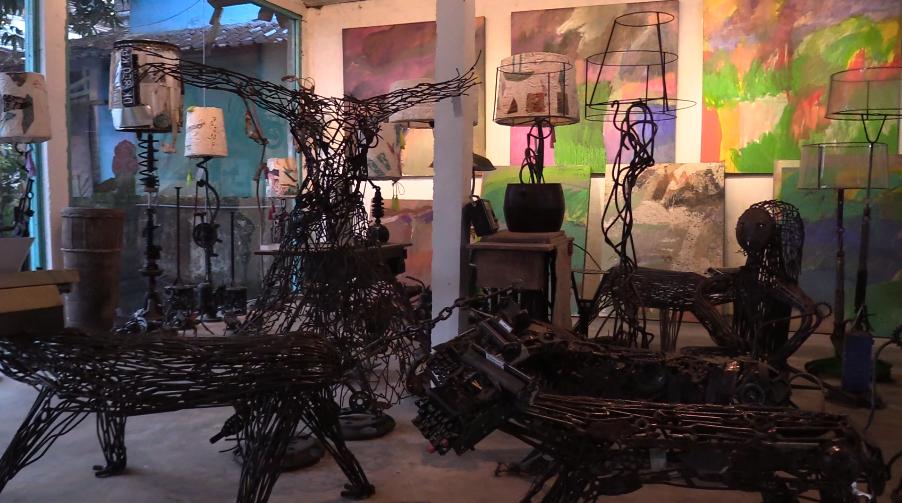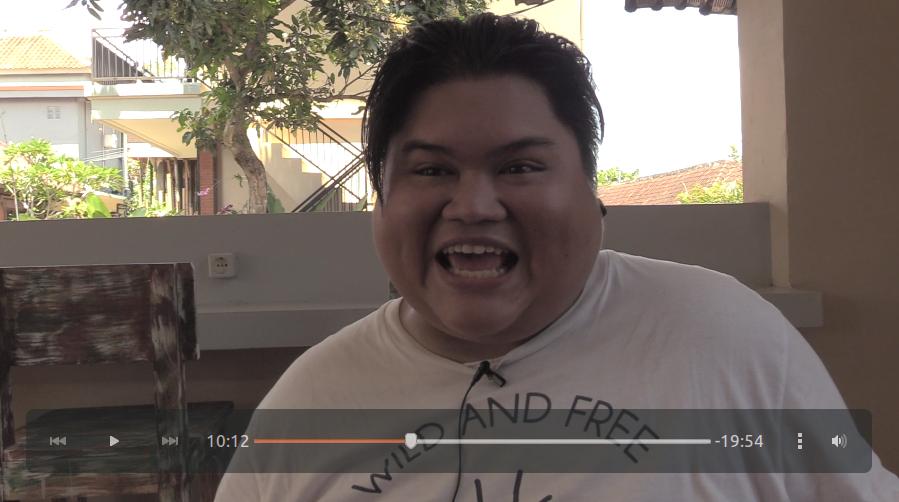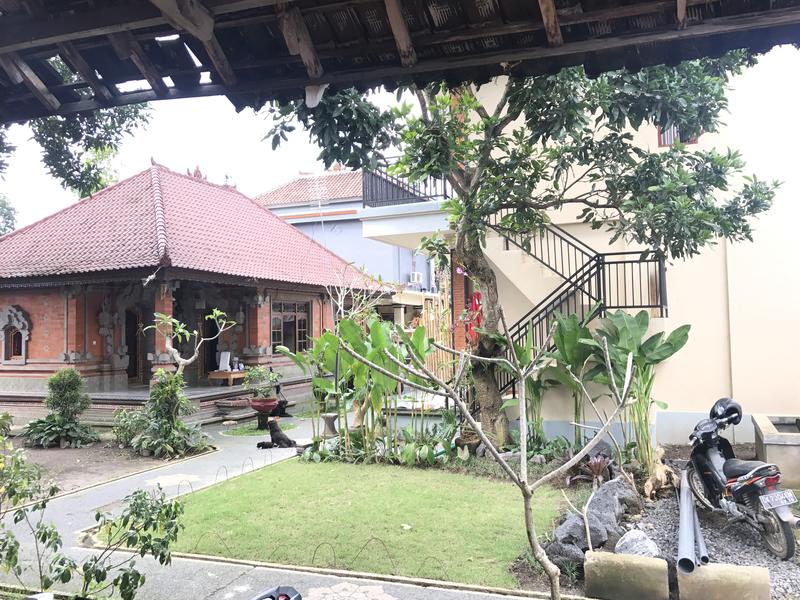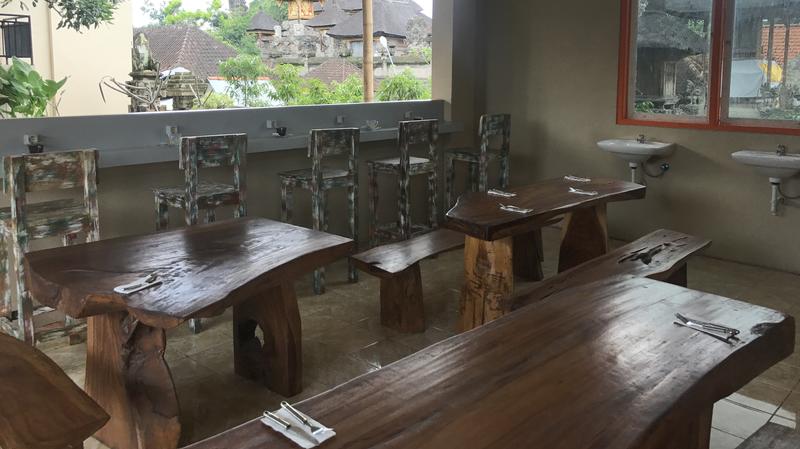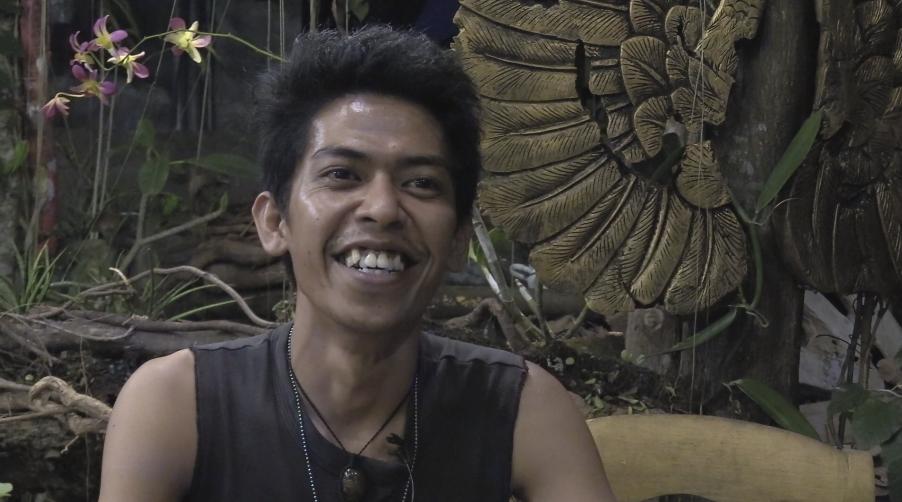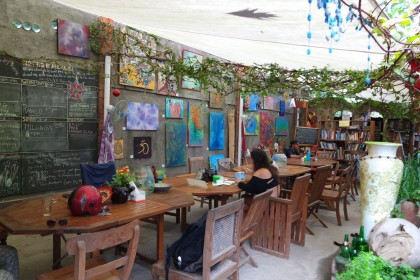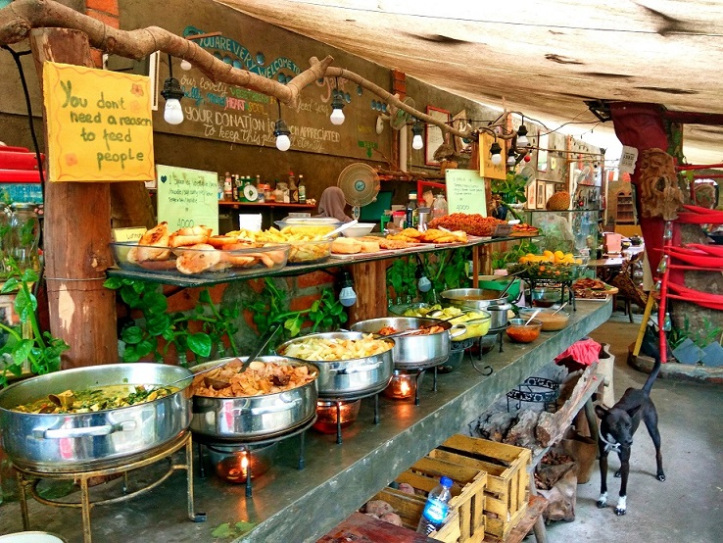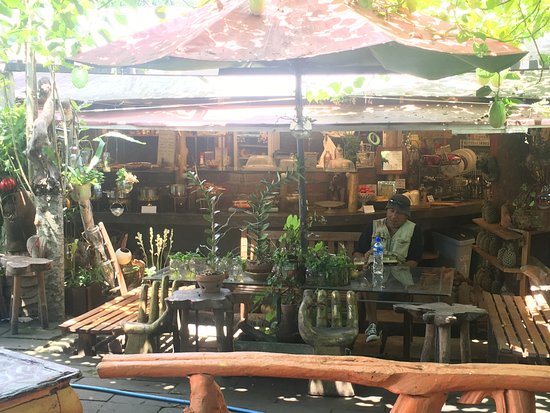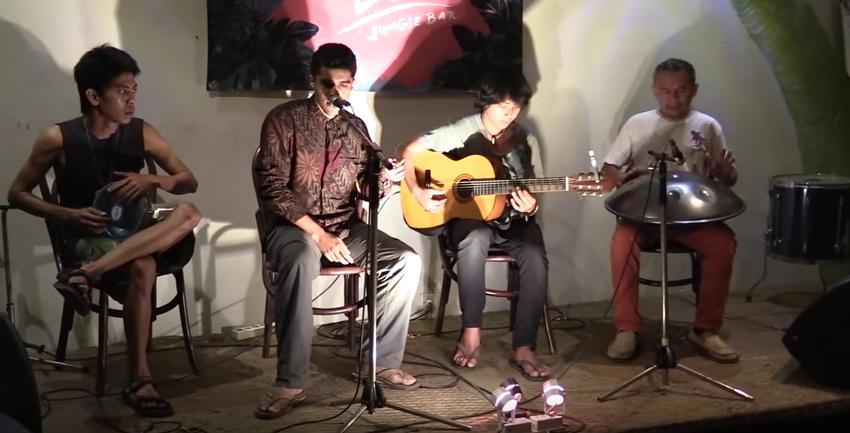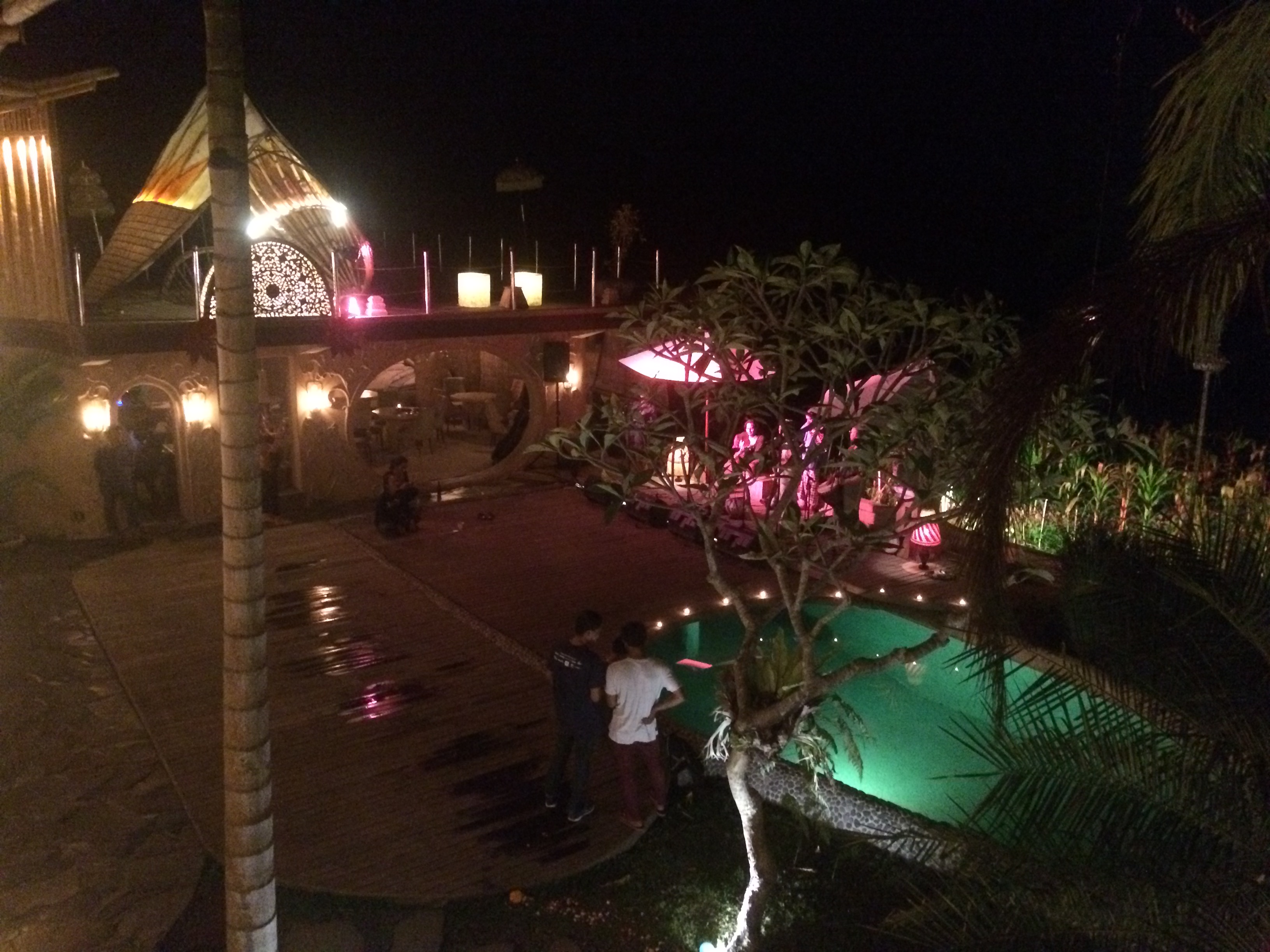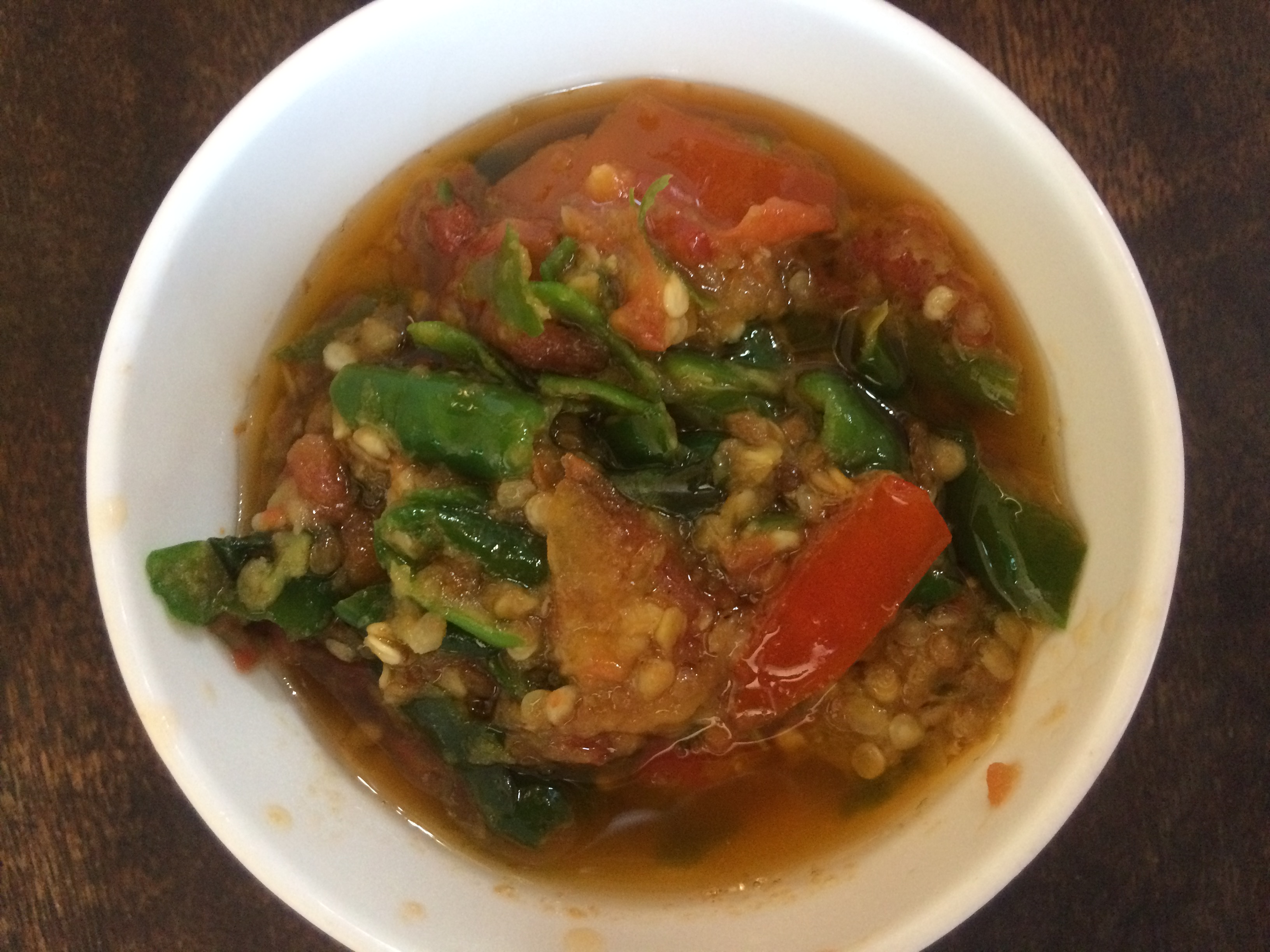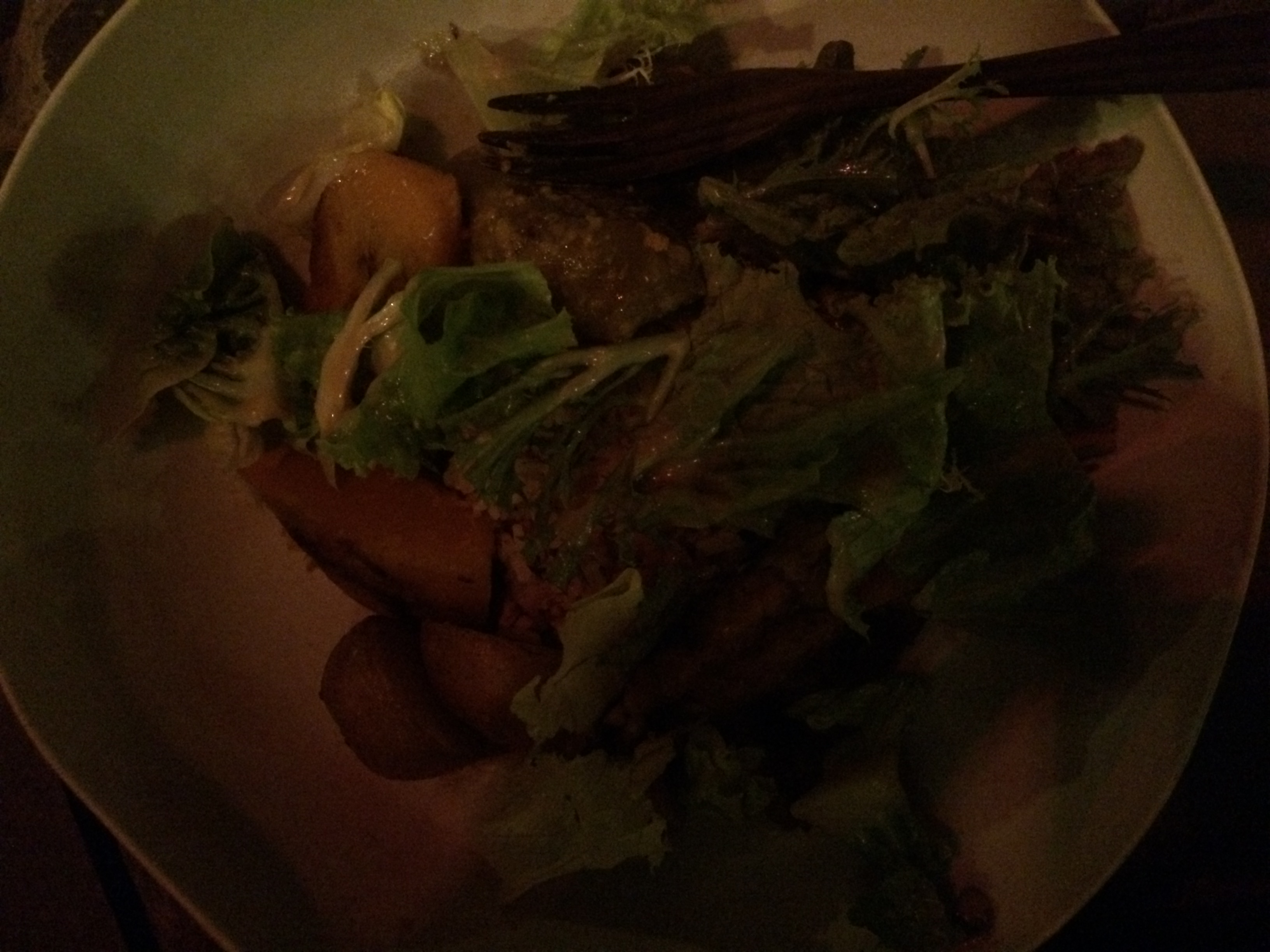Sketches of Interviewees
01 Oct 2017
Reading time ~21 minutes
I visited Singapore this past weekend simply to find myself back in Indonesia, albeit in the island of Sumatra as opposed to my previous destinations in Java and Bali. I will mention nearly nothing from my time in Singapore in this post because I was there only for a couple of days in order to obtain an additional visa on arrival to spend yet another 30 days in Indonesia. In the very short time I was there for, I recorded a track with Rupak and his band Mantravine for their soon to be released album, “Arambah”. I also met with a number of musicians and generally awesome people in Rupak’s friend circle during my time in the “Lion City”.
When initially making my way to Bali, I truthfully did not have high expectations for the quality and relevance of the research that I would be able to produce in the Hindu majority island. I assumed the arts scene in Bali would only be tangentially related to my project regarding music permissibility in Muslim majority communities. Upon meeting with Muslim musicians here in Ubud, I quickly began to realize that not visiting Bali would have been a big mistake. Many of these musicians grew up in rigidly Islamic families and communities in Java and Sumatra. In Bali, however, many such “expats” aren’t nearly as Muslim as they once were in their hometowns. While their abilities to make art artistic weren’t necessarily restricted back home, the greater religio-cultural diversity in Bali certainly affords these musicians additional opportunities and freedoms with which to explore the ever-diversifying realms of fine and performing arts. This past week has been more about getting to know such musicians and less about attending and filming events. The highlight of such encounters for me was meeting and interviewing Mikey, a Christian Indonesian born into an Evangelical Christian family. Mike’s story regarding limitations on music making throughout his childhood was shockingly similar to the Muslim musicians that I’ve learned here in Indonesia (more on Mikey’s story below). Each of the following sections will feature these individual interviewees’ stories in greater detail. Before diving into all but the very juciest of details of their stories, here’s a collection of street scenes that I’ve captured over the past week in Ubud to give you a better sense as to where I have been as of late.
Alif
The first of the string of interviews I did this week was with Alif, a full-time musician also in the band Bengras with Rio from last week’s post. Like nearly all the musicians I’ve interviewed so far, Alif is a self-taught musician who started playing drums for punk and hardcore music at age 13, but after exploring additional musical genres he really fell in love with traditional musics from around the globe. Most of all, he dug deeper into flamenco guitar from Spain, which he now fuses with elements of traditional Sundanese music (traditional music of his hometown in West Java) in the band Bengras. Alif was born into a strongly Muslim family, and he attended Islamic schooling from a young age. Before relating his own experiences with religion in detail, he made a point to emphasize the numerous differences in theory and practice between various madhab in Indonesia. Simply put, a madhab is an Islamic school of thought within fiqh (Islamic jurisprudence). The biggest madhab in Indonesia is the Shafi’i school, followed by several minority madhab’s including the Ahmadi school of Islam and several within Shia Islam. In addition to the diversity of practice and opinion regarding matters of Islamic jurisprudence encompassed by these various madhabs, Indonesia boasts a cornucopia of Islamic non-governmental organizations, political parties, socioreligious movements, and da’wah institutions that fall under broader madhab delineations. Such organizations include popular, moderate names such as Muhammadiyah (the majority reformist socioreligious group in Indonesia) and Nahdlatul Ulama (the majority traditionalist group in Indonesia) as well as notorious Islamist groups such as the Jemaah Islamiyah and the Islamic Defenders Front (FPI), connected with numerous acts of Islamic terrorism and hate crimes throughout Southeast Asia.
The kinds of religious people that Alif interacted with in his family and at school were somewhere between the strictly reformist and traditionalist positions encouraged by Muhammadiyah and Nahdlatul Ulama. He recounted the amount of diversity of opinion and practice he witnessed throughout his childhood from the various Islamic institutions and organizations active in his community. It was a common occurence for religious people to label things or actions as bidah. Bid’ah in its purest sense means a religious innovation, but in most cases in an Indonesian context it has a strongly negative connotation. Growing up, Alif was especially wary of a couple of his uncles who were entirely against music making of all shapes and sizes, not unlike one of my own uncles. He recounted to me that one day, as a primary school student, he brought back a recorder he was learning to play in class to his uncle’s home. Upon spotting the instrument, his uncle snapped the flute in half and berated him for engaging in bidah.
Hardliner Muslims often apply the term bidah to elements of culture or society that aren’t directly sanctioned by or mentioned in key Islamic texts. This includes the wealth of pre-Islamic religio-cultural artifacts and practices that one finds in varying degrees throughout Indonesia. Alif is skeptical of the allegations of bidah that such hardliner Muslims make. Equipped with a solid religious education and a thirst for rational analysis, he questions the validity of the hadith and sunnah that such people/groups cite to justify their allegations. In addition to the questionable authenticity of hadith defaming music making, Alif is not impressed with the lack of nuance and appreciation for context in hardliners’ interpretation of such hadith. He claims that there is a large number of inauthentic hadith attributed to individuals who were not even very close to Muhammad. He wonders why the various anti-arts statements that one finds in the hadith were not made by more central figures in Islamic history such as Jesus, Muhammad’s wife Fatimah, etc. Whenever people in his past have challenged him on matters related to the permissibility of music making, he immediately asks them what their definition of music is. Similar to what Cak Nun had told me in my interview with him the week prior, sounds that surround us in our natural and artificial environments could be defended as equally musical as one’s favorite Mozart concerto. In this light, it’s much more difficult for an anti-music advocate to proclaim that music making is forbidden, because Allah allows for musical sounds independent of human intention and action to surround our daily lives.
Adien
Remarkably similar to Alif, Adien grew up in a religious Muslim family and is now deeply invested in Spanish flamenco music. He’s now a full time musician and music educator, playing flamenco, gypsy jazz, and more around Indonesia. He attended one of the best Islamic schools in Jakarta for about nine years in total, where he was required to not only be familiar with key Islamic texts but actually memorize entire hadith. Several members in his immediate family circle are quite religious, but none of them are particularly pushy about their religious convictions. During his youth, Adien’s parents were of the opinion that music making was preferrable to the kinds of activities that individuals often opt into during their youth including video games, loitering, or going out to the movies, mall, etc. Adien told me that he’d never personally known a single individual against music making on Islamic grounds during his youth. He believes that the concentration of individuals in the Islam inspired anti-arts camp in Indonesia has been on the rise in recent years. Others I’ve spoken to on this matter have confirmed the emergence of this trend due to the increasing influence of Salafism backed by Saudi money and Saudi trained religious scholars/leaders in Indonesia. As with nearly every other musician I’ve intereviewed thus far who’s commented on this topic, Adien surmises that the rapid increase in anti-arts sentiments and activism in Jakarta is driven by underlying political motivations.
A good number of people that I’ve met who are also concerned with the growth of Salafism in Indonesia and abroad posit that various economic and political elites in Indonesia have their reasons for supporting hardliner ideology and activities. A rather common political conspiracy that I’ve encountered is that such economic and political elites fund fanatical, extremist, and/or radical groups to foster instability in Indonesia simply to make the current government in power look bad. Such conspiracists claim that extremist organizations derive their manpower from the ranks of those who haven’t much going for them including former thugs, criminals, or more generally people with lower socioeconomic statuses. Others including Adien claim that certain religious leaders simply seem more authoritative and pious when they take a hard stance on mundane or sensuous matters in life such as the arts, sexuality, or substance abuse. Others point towards a more general and mysterious gravitational pull towards the opposite poles of the religious ideological spectrum. Polarization for polarization’s sake - a global phenomenon at this point in history I suppose.
Agustian Supriatna: Double Threat
Like Rio from last week and several other musicians I’ve been in touch with in Indonesia, my next interviewee, Agustian Supriatna, is remarkably skilled as a visual artist. He owns an art studio and gallery in Ubud which is his primary income source. On the side, Augustine dabbles in world music fusion with his voice and newfound, self-taught abilities on tabla and bansuri. He told me in his interview that his investment in music and his abilities as a musician simply “just happen”, while visual art remains his baseline medium for creative expression, taking up the majority of his time. As with most musicians I’ve interviewed in Ubud, Augustian is originally from outside Bali, and he was born into a Muslim family. From a young age, he picked up dangdut music, various Islamic musical genres, and traditional music from his hometown in Lampung, Sumatra. Upon moving to West Java as a teenager for secondary schooling, he picked up Sundanese (having already known Indonesian and Lampungese) and became acquainted with pop, rock, and punk music.
Alongside musical activity and keeping a regular drawing habit, Agustian shared something about his younger self which I really did not expect. The very short version of the story that he told me is that he became an apprentice to the village shaman/healer in his hometown in Lampung in his late teens. His guru (teacher) was a well respected village elder with special expertise in martial arts, bone healing, and spiritual healing. Agustian was “adopted”, so to speak, by this highly regarded shaman due to his frequent bouts of illness from a young age. Once he reached a stable, healthy point in his life, Agustian had become so close to this shaman that he was chosen to serve as his successor. The shaman was thus invested in ensuring that Agustian would be capable of taking over his line of work, mandating key duties as a Muslim such as the five daily prayers, fasting during ramadan, zakat (almsgiving) as well as selected pre-Islamic practices such as additional dietary restrictions during certain times of the year, etc.
The significance of the presense of an Islamic village shaman in Agustian’s hometown in rural Lampung deserves mention, because it speaks to the unique religio-cultural syncretism that exists throughout Indonesia. Agustian’s upbringing featured a blend of Islamic and pre-Islamic beliefs and practices from Hindusim, animism, etc. On example of such blending took shape in the form of prayers and offerings made for ancestors using Islamic chants from dhikr and sholawat, a practice that would unquestionably invite vehement disapproval and even outrage from hardliner Muslims who are quick to label such practices as bidah. Agustian actually told me about a time that he and several peers were in the company of an imaam delivering a lesson/sermon when someone suddenly had apparently become possessed by a jinn. Agustian claims to have known the exact shamanistic cure for said individual, but he was forbidden by the imaam to exercise his healing abilities on the grounds that such practices never have and should never have a place within the fold of Islam.
Long story short, Agustian eventually found his way to Bali in his early twenties, finally having committed to living a life as a full-time visual artist. It took some time for him to come to this conclusion because he was provided with a vast array of conflicting and contradictory perspectives and claims about the permissibility of arts making from a young age. Some of the religious people he was surrounded by told him that the only things he could paint were landscapes and natural scenes and never human or animal subjects. Some told him that all music making was haram, further adding to the restrictions on his creative potential. At first, Agustian felt rather conflicted about engaging the arts head on. He felt that by not heeding others’ warnings, he was not being the best Muslim that he possibly could be. Now that he’s been in Bali for over fifteen years, his sense of doubt and guilt associated with arts making has completely subsided. Having experimented with religious practices of various faiths including Christianity and Hindusim, his perspective on spirituality has grown to be both much more universal in scope and more personal than ever before.
Mikey
With all the blogging that I’ve done thus far, I’ve been mindful of avoiding giving inflated impressions of the presence of religious intolerance, fanaticism, etc. in the places that I’ve been visiting. However, one of the core elements of my Watson project is learning about musicians’ experiences with limitations on music making on religious grounds. The premise of my project thus invites a larger percentage of content that happens to be on the negative side. If I were to tweak my project to be less about theologically inspired limitations on music making and more so about the theologically inspired varieties of music making that are alive and well, this blog would necessarily feature greater positivity than it currently does.
“Why is something so beautiful so evil?”
Those words belong Mikey, a full-time musician specializing in violin and fiddle performance based in Bali. I met him at last week’s Gong Kebyar rehearsal with the Narwastu community. Both Mikey’s mother, a Chinese-Balinese, and his father, a Filipino, have master’s degrees in theology and are currently pastors. Mikey prefaced our three hour interview regarding his musical and religious backgrounds by describing his upbringing as “sterile”. Born into an Evangelical Christian family, traces of traditional Balinese culture rooted in Hinduism from his mother’s side of the family or other non-Christian artifacts of Indonesian culture were nowhere to be found in the household, on the basis that such things were deeply evil and primitive. The kind of religious music that he was regularly exposed to from a young age was traditional two-part music at regular church services. At the time, this music was not Mikey’s favorite thing in the world. Instead, he fell in love with the sounds of sholawat nabi and the adhanat mosques in Palu, Sulawesi as they blasted out of loudspeakers surrounding his home.
Mikey shared a number of his personal experiences with me that speak to the intolerance for other religions and people of other religions that his family demonstrated on religious grounds. Mikey was forbidden to play outside with the Muslim children in his neighborhood as his father once gave him the following warning, “If you go outside to play with them, you’re not my son anymore.” He told me that most times the adhan could be heard from his home, his father would play any random Christian music he could find on the family boombox to compete with it. On one occasion, Mikey’s father suddenly braked in the middle of a road to sternly berate him for humming a sholawat nabi tune in the car. Mikey told me that if his parents were to find out about his infatuation with the musical sounds of Islamic worship, it would devastate them, and they would exercise all possible means for him to be rid of the evil working within. More recently, he mentioned to his mother that he wanted to play music for several non-Christian religious occasions that his friends invited him to including Rosh Hashanah and various Shabat dinners, but his mother discouraged him from attending such events on the grounds that “Jews deny Jesus.”
To cope with the limitations on his ability to discover and appreciate his mother’s Balinese culture or the majority Islamic culture of his hometown, Mikey embraced other past times. In describing the kinds of things and activities that Mikey’s parents were fine with him engaging with in place of the things that were forbidden for him to mess with, Mikey told me perhaps the most ironic phenomenon that I’ve encountered thus far on my travels. While chastising him for innocently singing sholawat nabi as a child, Mikey’s parents were perfectly fine with him being exposed to secular pop culture from around the world. Mikey could listen to all the American hip-hop and trap he wanted to, watch all the Japanese anime he wished, and play as many violent video games as his heart desired. Even if Mikey’s parents weren’t necessarily fans of all these engagements, they never actively censored them out of his life as they did with Balinese culture and spiritual and cultural elements of religions other than Christianity. This suggests that the issue wasn’t as much about avoiding immorality as it was about avoiding all traces of other religious practices.
Mikey’s ability to dabble with Balinese gamelan music without facing severe opposition from his family was enabled by loophole. After moving to Bali, he learned that his local church actually had a Balinese gamelan set of its own, a shocking prospect considering the strong associations between Balinese gamelan music and Hindu worship. Mikey eventually joined the Narwastu community in Batu Bulan to further exercise his gamelan chops. Unfortunately, after Mikey’s grandparents on his Balinese-Chinese mother’s side found out about his newfound love for gamelan music, they stopped talking to him for just over a year. Currently, Mikey’s family members mostly accept him for the musician that he is, because he’s gone to great lengths to prove both his musicianship and belief in Jesus.
Because of the “sterility” that Evangelical Christianity promotes in the Indonesian context, Mikey told me that less and less younger people feel the incentive to be religious. Yet, for all the things that Mikey has against the environment that he grew up in, he remains deeply religious, as it offers him peace and stability in life. It saddens him that there exist people who politicize religion, using it as a justification for suspicion and intolerance, because more and more younger people are missing out on the benefits of spiritual life. Putting the decline of religious life aside, Mikey remains strongly hopeful for the next generation of Indonesian households to fully embrace Indonesia’s religious diversity as opposed to living in families and communities guided by insularity, self-rightousness, and hate.
Agus
Contrary to an impression that I may have given off in my blog posts so far, it is important for me to mention that being a heavily religious Muslim in Indonesia absolutely does not mean that one is necessarily anti-arts. Some of the most religious people that I’ve met so far have been rebana players or sholawat singers. Such heavily religious people simply subscribe to differing interpretations of the Islamic canon than those individuals who deny the permissibility of music making altogether based on a few key lines or verses from the quran and hadith.
The last of five interviews I completed this week was with Agus Kun, a full-time visual artist and part-time musician. As every other musical person I’ve mentioned in this post, Agus is not originally from Bali. Rather, he was born and raised in West Java (i.e. Sunda). Agus never attended Islamic school per se but rather frequented evening lessons in conducting salat mushollah (small mosque/Islamic center) near his home. These evening lessons also featured qitab kuning or the study of various Islamic texts/topics such as fiqh (jurisprudence), aqidah (faith/creed), akhlaq/tasawuf (morals), Sufisme (Sufism), tata bahasa (Arabic grammar), tafsir (interpretation/exegesis), and ilmu al-Quran (Quranic science).
Agus’ family is a great example of a strongly Islamic family that is nonetheless very easy going and open to all kinds of arts making. As a child, Agus’ father told him that he was free to do whatever he wished in life as long as he promised to observe the five daily prayers at their appropriate times. This is one of few spiritual requisites that Agus’ family strictly maintains. Agus can’t sincerely claim to observe the five daily prayers at this point in time, but he still does salat on occasion and remains faithful towards Allah SWT alone. Interestingly, even though Agus is not the most religious Muslim in the world, he’s quite convinced about the divinely inspired nature of Islam over other religions. Though he does not actively do dakwah, he still enjoys discussing religion with travelers and friends, hoping that they may consider his ideas and beliefs about Islam.
Agus’ earliest encounters with music making were with the Islamic sounds of qasidah music using rebana drums in his hometown in Sunda. In his teens, as with several other musicians I’ve met here in Bali and back in Java, Agus’ punk, metal, and grunge phase slowly gave way to his current day appreciation for traditional music from around the world. Agus told me that he’d generally been aware of the haram/halal debate in his life, but he’d only been appraoched to stop making music in public only once or twice that he could remember. In those few instances, he respectfully consented to stop making music especially because he was gently requested by a group of people to whom he gave the benefit of the doubt on the matter. After hearing a number of conflicting opinions on the topic, Agus approached one of his religious teachers for guidance. His teacher told him not to take the allegations he’d received very seriously, because at the end of the day, he mentioned that we humans never really know if what we are doing is haram, halal, or somewhere in between. His teacher told him that we can never even be sure that God accepts the prayers that we direct towards him. In light of this, Agus now believes it is better to exercise one’s own moral compass and continually strive towards generally doing good deeds rather than obsessing about minor details regarding the permissibility of one action over another. He figures that simply focusing on doing good things informed by his existing religious knowledge and moral sense is enough to avoid all that he might consider to be haram.
Some Open Mic’s and Generally Fun Scenes
So that was a mouthful of biographic details and jargon. On a less serious note, here’s a slideshow of cool events I was able to attend this past week while interviewing people on the issues.
Tasty Treats in Ubud
And of course, I bid you all adieu with some new, juicy foods from this week. Sadly, I wasn’t able to sample very many traditional Balinese foods while in Bali. Nonetheless, the foods I was able to sample were quite delicious as always.

